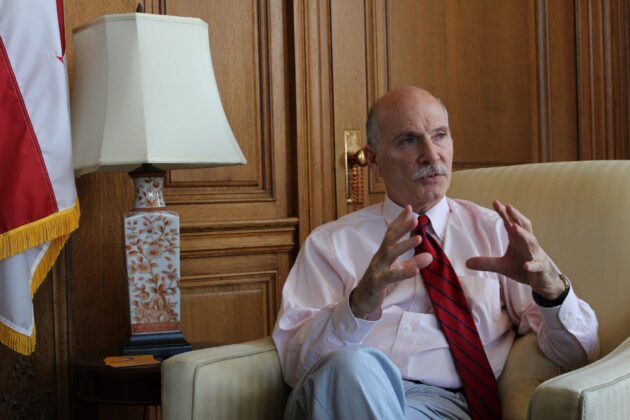Phil Mendelson: To Make a Difference, Intervene Early

DC Council Chairman Phil Mendelson has been in elected office since before Children’s Law Center was founded in 1996.
“A long, long time,” he says, smiling.
Mendelson was first elected as a DC neighborhood commissioner, then an At-Large Councilmember, and finally Council Chairman since 2012.
As he thinks about what has shaped his views on public policy related to children, one incident stands out: the South Capitol Street shootings.
Over an eight-day period in 2010, four young people were murdered and nine wounded during a series of drive-by shootings in one DC neighborhood.
The tragedy made a lasting impact on Mendelson – as it did on many families living in DC at the time. The shooters and victims were all very young, mostly teenagers. He learned that two of the young perpetrators were brothers with a long criminal history.
“I thought at the time: what is going on that two kids, two brothers are out there shooting people? Clearly something was going on in that home. We should have intervened long before, we should have been knocking on their door,” he says.
“It got me thinking.”
Mendelson’s search for solutions led him to believe in intervening earlier in a child’s life. As leader of the Council’s Judiciary Committee, he focused on preventing the school-to-prison pipeline by identifying children who were chronically truant and intervening before problems grew.
I view the truancy process as a way of identifying at-risk kids before they become delinquent so we can put some resources into diverting them [from the criminal justice system],” Mendelson says.
It also led him to vote for the DC Council’s South Capitol Street Memorial Act of 2012, which encouraged schools to help children with unmet social and emotional needs by improving school-based mental health services.
Another important area for Mendelson? Expanding legal aid for DC residents. As Chair of the Council’s Judiciary Committee at the time, he was an early champion of funding legal services to close the gap in access to justice for low-income DC families.
As a result, since 2006 the DC government has invested millions of dollars in free legal help for vulnerable residents through on-the-ground community organizations like Children’s Law Center.
“I think that access to justice may be the most cost effective way of dealing with the problems of poverty,” Mendelson says. “It minimizes evictions, improves education. It empowers people and doesn’t cost us a lot of money.”
Because he started in the Council during a tumultuous time for DC government – a fiscal crisis led to a takeover by Congress and “we were tied up in a whole bunch of receiverships…[including] over special education and the child welfare system” – Mendelson has a strong focus on good governance.
He believes the DC government has come a long way since those difficult years.
“The Council is more professional. We’re adopting legislation that is based on evidence,” he says. “And there is a better understanding of best practices.”
He also encourages advocates to promote evidence as they advocate for policy reforms. “Be specific as to recommendations or criticisms…know best practices rather than go with your gut,” he says.
It’s one thing that he values about Children’s Law Center.
“We haven’t always agreed,” he says, “but your comments and testimony are specific and thought out…Children’s Law Center has been ever present [as advocates], and that’s important.”
When he thinks about the Council’s priorities for the future, he remains very pragmatic.
“I don’t think there are a lot of untapped or unknown solutions. People have been struggling with these questions [about how to help at-risk children and families] for a long time,” he says.
“I think the District government needs to be more rigorous about identifying what is working and put more resources in that. And identify programs that are not working or languishing because they are not administered well [and change them],” he says.
It’s an area where we wholeheartedly agree with Chairman Mendelson.
And as we look to the next 20 years, we promise to continue our evidence-based advocacy, working hand-in-hand with DC leaders to promote proven policy solutions that work for all DC children.
